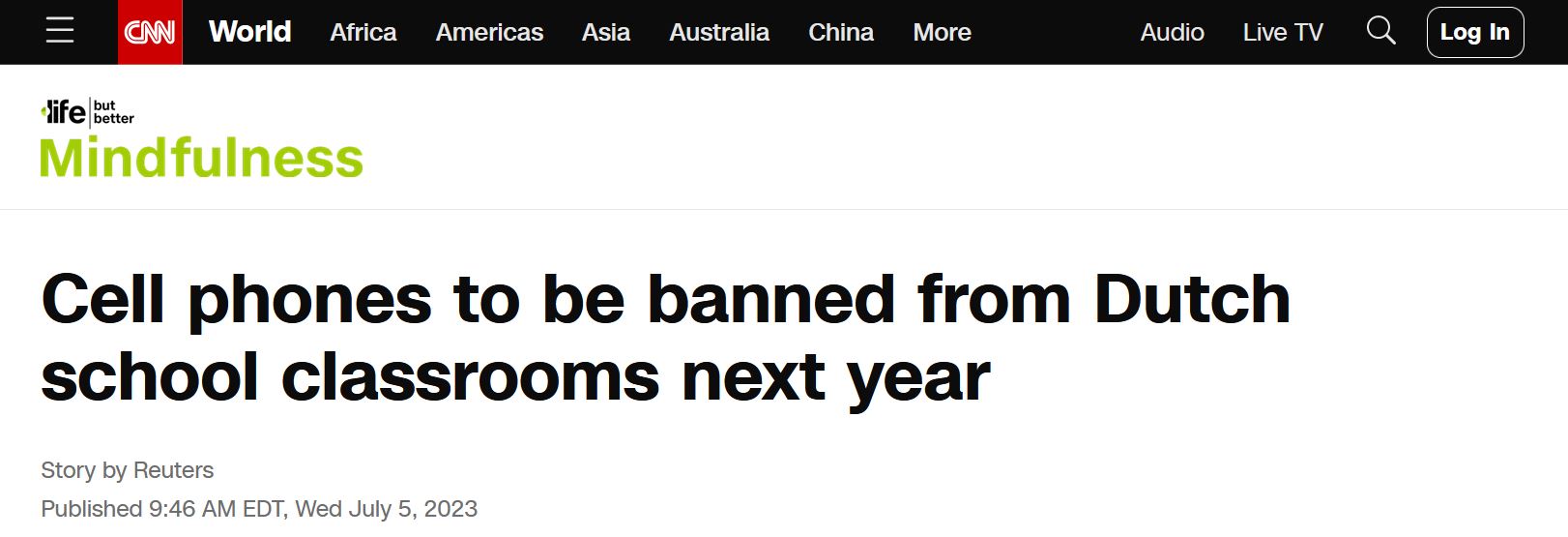
Cell phones banned in Dutch schools
Cell phones, tablets and smartwatches will be largely banned from classrooms in the Netherlands from January 1, 2024, the Dutch government said on Tuesday, in a bid to limit distractions during lessons.
I would not appreciate a law like this in the US.
When I started teaching Physics, keeping stopwatches working was 2% of my job. Stopwatches should be easy, but they break or the batteries die. That’s a problem when you have a couple of dozen of them. When students started getting smart phones, I got out of the stopwatch business.
My students used their phones to measure ramp angles, compass headings and sound levels. I preferred using lab equipment for those measurements, but equipment is expensive, needs maintenance and there is never enough for each group. Smart phones provided opportunities for several more hands-on demonstrations. For example, the camera on an Android phone can detect infrared light.
It wasn’t unusual for one student to take data during a lab, with the other group members taking a photo of the data so they could complete their write-up. If time was running short, students might take a photo of an example problem I was finishing on the chalkboard as the dismissal bell rang.
If students are screwing around on their phones, they aren’t learning anything. In addition, social media isn’t really social. Students are developing social pathologies by going digital with their social interactions. Some students are literally addicted.
On the first day of school, I explained this to them.
“Have you ever been the second car back at a red light? The light turns green, and the first car doesn’t move. How many had that experience? If you didn’t raise your hand, you are the person in the first car.”
My rule was that if they were in my room, I didn’t want to see their phones without explicit permission. It didn’t matter if class had started yet or the bell rang and class was over. If you aren’t doing anything, then make small talk with a classmate. Then we’d practice small talk and conversational gambits. If you finish the quiz and are just sitting there, then daydream.
For Open House, I’d explain this to parents.
“I’ve seen football players sitting next to cheerleaders, and they are both texting on their phones. Your kid has no game, and you will never have grandchildren if we don’t fix this.”
Parents were understood. Once or twice, I had to have a student put their phone on my desk for the period, but for the most part, I just hectored students every time it came up. Once students understood the policy, I only had to address a phone issue four or five times per day.
If the government wants to pass a law, they should relieve school districts and district personnel of any liability for anything that happens to a student’s phone. Sure, a couple of crazy teachers would smash a student’s phone with a hammer, but a good policy would be to confiscate the phone, drop it into a mailing envelope and send the phone to the student’s home. A student without a phone for two days would be murder.